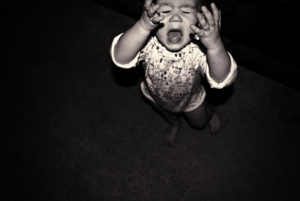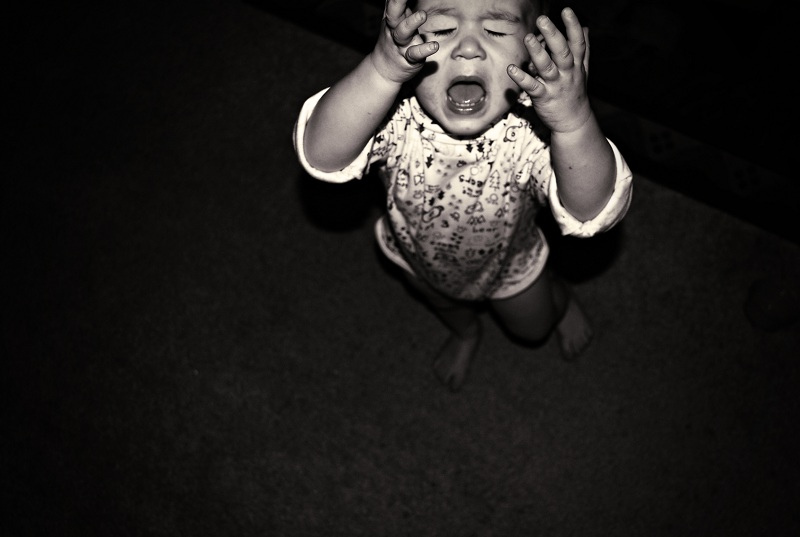To The Exhausted Mother Whose Child Throws a Fit When the Wind Blows,
I want you to know you’re not alone. The other day I was hosting a neighbor for a quick cup of coffee at my house. When she showed up, she could barely hear my greeting over the screams of my 3-year-old son, who was rolling around on the floor crying. You see, I had just committed the crime of all crimes—I opened his granola bar WRONG. He expected it opened in a way that he could keep the bar in the wrapper as he ate, thereby reducing the mess on his hands, but I opened it in a way that necessitated the wrapper be thrown away, ruining his plans. THE WORLD ENDED. Or his, world, at least. This lead to an hour of crying, kicking, hitting me, and throwing things.

My child struggles with sensory integration, which often leads to some extreme meltdowns. To survive the meltdowns, I have to remember to use my favorite parenting tools: intention and empathy.
I was mortified by his fit and tried to make a joke about it with my neighbor, explaining that he throws a fit if the wind blows the wrong way. This is a joke I’ve made a lot over the years of raising two kids that struggle with sensory integration. It’s an easy way to laugh it off with others.
But here’s the thing, it’s not that funny since it’s actually somewhat true, as you might surmise from the granola bar story. Lately I’ve been asking myself why I try to laugh off these difficult moments with friends. I know this is a defense mechanism, as it’s a lot easier to make a joke than to say, “I’m exhausted and this is so freaking hard.” In an effort to practice what I preach, I’ve tried to be more vulnerable and have found the courage to utter that truth, both to myself and to my friends. Many of you know I teach Love & Logic parenting classes, which makes it even harder for me to admit how hard it can be. I have to remind myself that I’m not perfect, and that imperfection is okay. Inside imperfection, there’s room for grace and growth. I want you to know that I know how hard it is and even as a therapist and parenting coach, I struggle with my reactions too.
I’ve found the best way for me to respond to these meltdowns in an intentional way is to take care of myself first. If I’ve spent the past several days tending to everyone’s needs but my own, my patience is much lower, leading me to respond to these meltdowns in a frustrated way that leaves me regretting my response later. If I’ve been filling my own bucket with self-care (be it reading, going to an exercise class, carving out time with friends, or doing my nails), I am much more capable of responding empathetically to my child, which is what they need. They need to learn that my love for them is unconditional, and that I can respond calmly to stressful situations.
A part of empathy is seeing one’s intentions. With each melt down, I have to remember that my child’s intentions are not to drive me insane or to see what I will do or how I will respond. His intentions have nothing to do with me actually, they have to do with him and his little body and brain trying to get their needs met. I’ve tried to teach my children to use their calm voice and their words to express their needs, but this isn’t always what happens when they are in a sensory overloaded place of overwhelm. This reminder that they are doing the best they can in that moment helps me to respond with love and understanding, which is not only what they need to actually calm down, but is also what we both need to nurture our relationship.
And you know what’s cool about this? You’re also doing the best you can, even if you lose your temper after what seems to you like a totally unnecessary meltdown. You’re doing your best mama – take heart in that fact!
Sincerely,
Brittni
P.S. If you’re feeling overwhelmed by your child’s behavior, seek out support, information, and help. One place to start may be at a workshop I’m leading with the fabulous owner of Honest Occupational Therapy, Jill Loftus. Jill will teach us what is behind our children’s behavior so we can learn how to better support them. For more information and to sign up, go to www.kindred-counseling.com/events/. To learn more about Jill, go to www.honestot.com.

